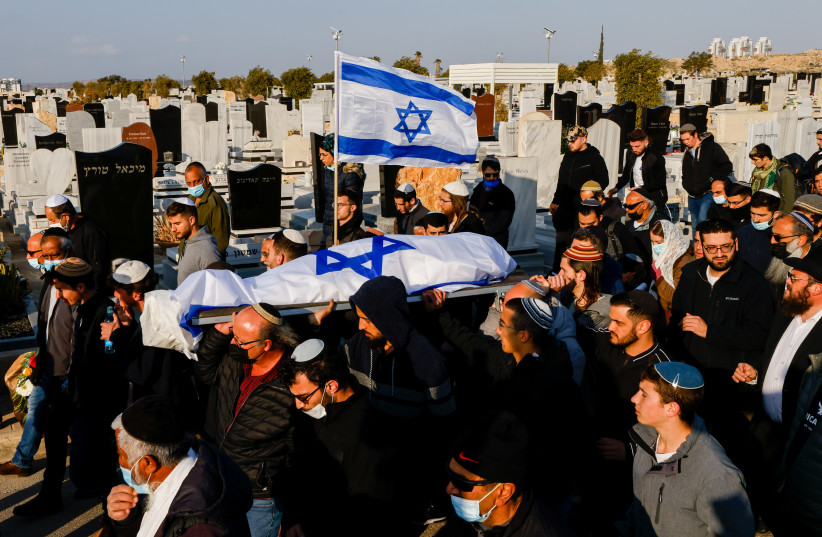Anarchy is a breeding ground for terrorism.
This is one of the reasons failed and weak states are so dangerous. In places where there is no central authority, where there is no law and order, where there is poor governance, where there is little to no police or military presence, terror flourishes. It can flourish precisely because nobody is watching.
This does not mean that terror only grows in such areas, but rather these areas are particularly fertile breeding grounds for terrorists.
Think Iraq, Lebanon, Syria, Somalia, Nigeria and the Democratic Republic of the Congo. Think, too, not only of failed states, but also failed regions within states where anarchy rules. Think of parts of Pakistan, parts of the Philippines.
Think, too, of the Negev.

Muhammad Alab Ahmed abu al-Kiyan’s brutal murder of four people in Beersheba on Tuesday, and the serious wounding of two others, needs to wake this country up to the anarchy and utter lawlessness that holds sway in the Negev.
Hair-raising stories abound of women afraid to leave their homes at night in Beersheba, of outrageously reckless drivers on Negev roads, of Bedouin gangs stealing military equipment from inside IDF bases – sometimes right off of tanks and armored personnel carriers.
The Negev is Israel’s Wild West, and it has been so for years. Laws that apply in other parts of the country that regulate matters, such as the possession of weapons, where homes can be built, obedience to basic traffic laws, polygamy and where cannabis can be grown, are simply not enforced among Bedouin in the Negev. It’s as if this large region is extra-territorial.
And this is a process that has been going on, unimpeded, for years. Former prime minister Benjamin Netanyahu, in a classic bit of chutzpah, tweeted after Tuesday’s attack that Prime Minister Naftali Bennett and Foreign Minister Yair Lapid’s “weakness” can be blamed for it.
“After they abandoned the Negev to [the Arab political party] Ra’am and the Islamic Movement, they are abandoning the lives of the Negev residents to bloodthirsty Islamic terrorists.”
As if Netanyahu was not the prime minister for 12 consecutive years from 2009-to 2021 during which time the Negev increasingly turned into a lawless land.
States, or regions within states, fail when central governments are unable or unwilling – often because of fear – to carry out their basic responsibilities as the sovereign in the area, and when many within that state or region don’t believe the government has legitimacy. Sadly, all of this can be said of the Bedouin areas in the Negev, and it has been that way for years.
Much was written and discussed during the early days of the coronavirus in 2020 about how certain haredi areas in the country function like semi-autonomous entities, where people do what they wish without paying any consideration to the rules and norms of the state. What goes on in some of the Bedouin areas in the Negev, however, makes Bnei Brak look as if it is a paragon of obedience to Israeli law.
For too long the authorities have turned either a blind or overly-forgiving eye to what was going on in parts of the Negev.
That policy exploded in Israel’s face during last May’s war in Gaza, when not only did Israeli Arabs riot in mixed cities like Lod and Acre, but widespread rioting by Bedouin occurred on Negev roads.
Insufficient attention was paid to the events in the Negev that demonstrated the gradual radicalization of a fringe part – and it is only a fringe part – of the Bedouin population.
And now comes al-Kiyan’s attack, the worst terror attack in the country in years. Al-Kiyan went on his murderous spree not because houses are constructed without permits and traffic laws are not enforced in his hometown of Hura. He murdered four people in cold blood because he was infected by a poisonous ideology.
Yet, that houses are constructed in Hura without permits, and traffic laws are not enforced there, creates an atmosphere of lawlessness. It also shows that no one really cares and that no one is watching. For if you care, you enforce laws. And where no one is watching, terrorism will flourish.
